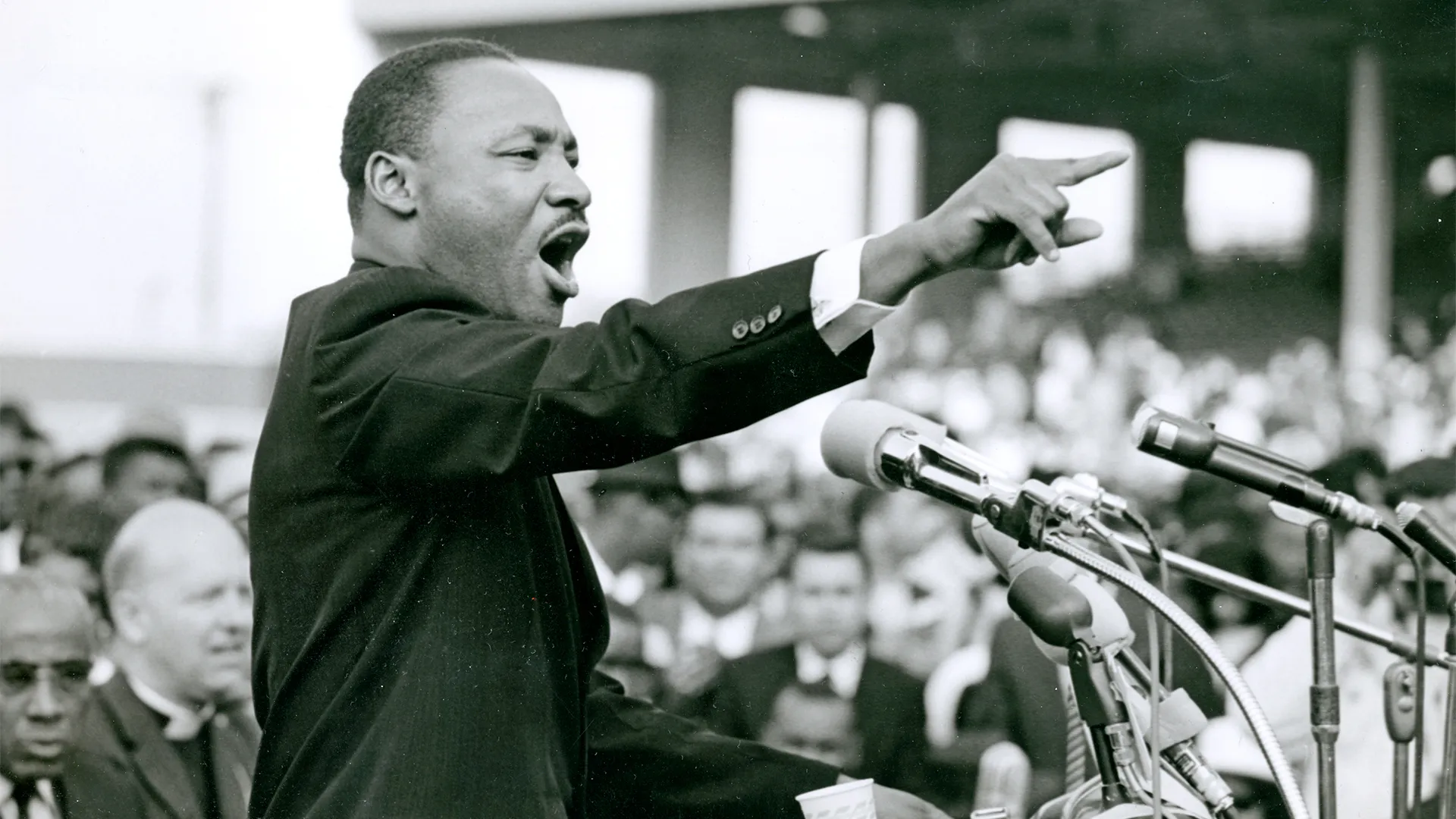Now Reading: Martin Luther King, Jr. | Biography, Speeches, Facts, & Assassination,wiki
-
01
Martin Luther King, Jr. | Biography, Speeches, Facts, & Assassination,wiki

Martin Luther King, Jr. | Biography, Speeches, Facts, & Assassination,wiki
Biography of Martin Luther King, Jr.
| Detail | Information |
|---|---|
| Name | Martin Luther King, Jr. |
| Age | 39 years (deceased) |
| Birthdate | January 15, 1929 |
| Death Date | April 4, 1968 |
| Height | 5 ft 7 in (170 cm) |
| Weight | 210 lbs (95 kg) |
| Eye Color | Dark Brown |
| Original Name | Michael Luther King, Jr. |
| Hometown | Atlanta, Georgia |
| Home | Atlanta, Georgia |
| Spouse | Coretta Scott King |
| Children’s Names | Yolanda, Martin III, Dexter, Bernice |
| Origin | American |
| Exes | None |
| Brand Ambassador Roles | Civil Rights Movement |
Early Life and Family
Martin Luther Lord Jr. was born on January 15, 1929 in Atlanta, Georgia. His nickname is Michael Luther Lord, Jr. He was raised in a conservative family; His father Martin Luther Lord Sr. was a minister, and his mother, Alberta Williams Ruler, was a teacher. Lord had a very famous sister named Christine and a very young brother named Alfred Daniel.
Having a nurturing and stable childhood, Ruler faced the hardships of isolation and bigotry in the South. His deep and solid family foundation completely influenced his character and beliefs. He was taught the importance of justice, fairness, and trust. Ruler excelled in school, and showed a strong interest in writing and public speaking, which would later serve him well in his work for social equality.
Early Career and Struggles
Booker T. McCarthy Moving on from Washington High School, Lord attended Morehouse School, where he concentrated on anthropology and participated in social liberal discussions Upon graduation, he was admitted attended Crozer Divinity Theological Seminary in Pennsylvania, where he received the degree of Unhitched male of Godliness . The ruler’s time at the Theological Seminary would shape his philosophical and religious outlook.
After graduation, Lord took his most memorable peace assignment at Dexter Road Baptist Church in Montgomery, Alabama, in 1954. Here he faced the inherent battles of running an intersection and he has laid a good foundation as the speaker. His early work was distinguished by the challenges of defending social equality in a highly segregated society.
The death of radical Emmett Till in 1955, and the subsequent arrest of Rosa Parks for refusing to give up her car seat to a white man, brought Lord right in. He became an unmistakable figure on the anticipated Montgomery Transportation Blacklist to end racial segregation in the end on a free ride. This work demonstrated the Lord’s commitment to peaceful protest.
Rise to Stardom
Lord’s ascension to a positive goal began with the development of Montgomery’s travel timeline. The blacklist continued for north of a year, and he joined Montgomery’s African-American crowd like never before. The ruler helped organize the black community through the newly sized Montgomery Reform Alliance, where he served as chairman.
His remarkable mastery of the language of the Lords combined with his ability to persuade others brought him public recognition. He gave popular speeches such as “I Have a Fantasy” at the 1963 Walk on Washington for Occupations and Opportunity. His vision of a racially integrated and cohesive America echoed individuality, further enriching his message, and establishing his career as a pioneer in advancing social equality
Success
Martin Luther King Jr. is extremely popular for his approach to social equality in life for African Americans. His term during the Birmingham hearings in 1963 and the Selma to Montgomery march in 1965 saw the fight for voting rights and racial justice These moments inspired the 1965 Democratic Freedom Demonstration , a major legislative breakthrough in the fight against racial segregation
Ruller received various honors for his efforts, including the 1964 Nobel Harmony Prize. His work impressed countless others and raises concerns about social equity and progress around the world. Lords’ achievements stem from his dialogue and composition as well as his ability to activate networks to inspire equality.
Failure
Despite his many victories, Ruler faced hardships and sufferings. He faced fierce opposition from separatists and individuals in the federal government. A few objected to his guidance, and it was too days to suggest his peaceful ways. Many times the Lord faces danger for his life and the safety of his loved ones.
Despite the external challenges, the Lord fought internally in the development of social freedom. Conflicts erupted among activists over the best policies for justice, which sometimes provoked the split. In addition, the ruler faced his own internal challenges, including the constant pressure of risk and the enormous burden of authority that now affected his emotional well-being .
Humanitarian Work
Martin Luther Lord Jr. stood for social equality and was dedicated to acts of kindness. He believed that all wars against fraud are connected. Based on need, war and income imbalance, the ruler linked these issues to the fight for social equality.
He founded the Southern Christian Initiative Conference (SCLC) which was expected to promote peaceful struggle over the country. Lord also participated in campaigns to address social issues, such as public housing, training and medical services, and supported higher levels of personal satisfaction for all individuals, with little regard for race
In 1967 he began to oppose the Vietnam War, recognizing that much of the money spent on the war should have been used for social services. His “Past Vietnam” speech outlined a vision of civil rights, with its responsibility for reconciliation and global relief efforts.
Personal Life and Controversies
Martin Luther King Jr. married Coretta Scott on June 18, 1953. The couple had four young children: Yolanda, Martin Luther Lord III, Dexter and Bernice. Coretta was an active member of Social Liberties Development, supported the work of its better half, and continued to work on its estate after her death.
Ruler faced his views in his life, including accusations of betrayal and attempts by the FBI to destroy him. Instead of constantly seeking and taking risks, Ruler had dedicated himself to his values which emphasized the importance of love, compassion and understanding
His personal battles, coupled with the pressures of the job, negatively impacted his daily life. In any case, the Lord often spoke of the importance of family and community, empowering others to unite for wholeness.
Legacy / Awards
Martin Luther Ruler Jr. was assassinated in Memphis, Tennessee on April 4, 1968, for helping abortion workers break free. His death shocked the world and had a profound effect on the development of social freedom. Despite the misfortune, the ruler’s legacy continues to inspire the ages to advocate for civil rights and solidarity.
In 1983, Martin Luther Jr. Day was established as a government opportunity in America to fulfill its promises to promote social freedom and schooling. Many schools and associations compliment the day by taking part in local community service exercises, reaffirming her belief in the strength of combined action.
Ruler received a variety of posthumous grants, including official awards for the event and gold decorations in parliament. His speech and work remain key texts in the fight for social equality and civil rights, and his tenacity is seen through the influence of American culture and global liberalism in general
The life of Martin Luther Lord Jr. was generally depicted in terms of energetic support for correspondence and peaceful defenses against injustice. His legacy and lessons continue to inspire individuals across the planet to fight for equality and human dignity.















